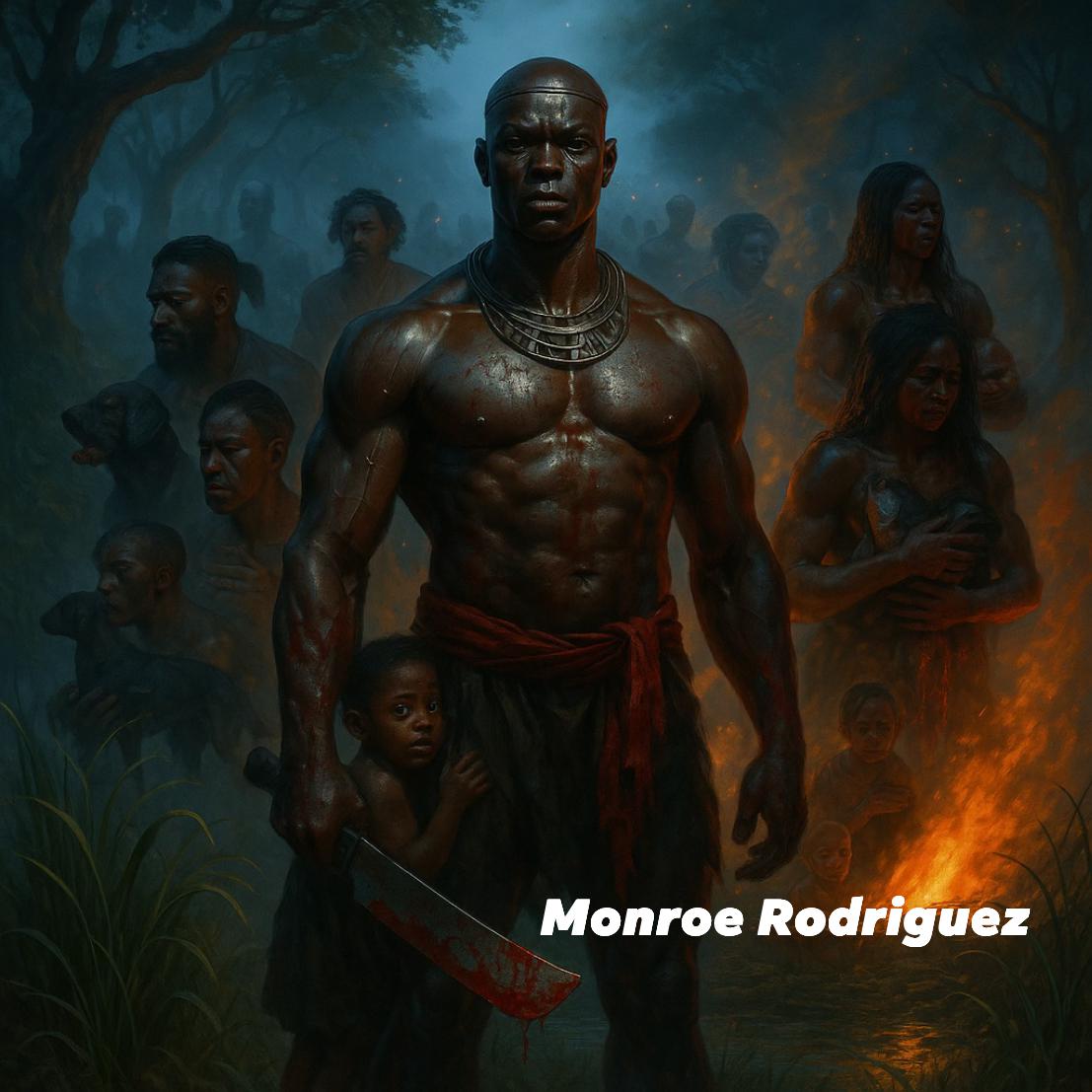
Ògún: The Yoruba Orisa of Iron, Transformation, and Civilization
Within the spiritual and philosophical tapestry of the Yoruba people, the figure of Ògún (also spelled Ogun) stands out as a powerful embodiment of creativity, technology, and the capacity for both destruction and renewal. Revered as the Orisa of iron, metallurgy, war, and the forging of civilization, Ògún’s worship and mythology illuminate deep themes of innovation, social order, and the ambivalence of human progress.
Mythological Origins and Identity
Ògún is counted among the primordial Orisa, present at the dawn of creation. In Yoruba oral tradition, Ògún is described as the first being to clear a path through the primordial wilderness, using his iron implements to carve roads, cultivate land, and make way for humanity and other Orisa.
- The Path Opener: Ògún’s legendary journey from the spiritual realm (Orun) to the earth (Aiye) signifies not only physical passage but the advance of civilization, technological mastery, and the relentless spirit of exploration.
- Blacksmith, Warrior, and Hunter: He is celebrated as the archetypal blacksmith and craftsman, as well as a fierce warrior and accomplished hunter, reflecting a multifaceted agency within both society and nature.
Attributes and Symbolism
- Iron and Technology: Iron is sacred to Ògún. All tools, weapons, and machines are considered his domain. Blacksmiths, artisans, soldiers, and engineers often claim his patronage.
- Ambivalence and Duality: Ògún is a force of both creation and destruction. He brings tools that build cities and weapons that wage war. This duality reflects the Yoruba understanding of aṣẹ (divine energy)—neutral until channeled by intention and ethics.
- Ritual Implements: Ògún’s symbols include the machete (ada), iron chain, anvil, and dog (his sacred animal). His colors are typically green and black, representing nature and iron.
- The Road and Boundaries: Ògún is invoked at crossroads, thresholds, and new beginnings—wherever the old must give way to the new.
Worship, Ritual, and Social Role
Ògún’s veneration is integral to both daily life and major communal events:
- Offerings and Sacrifice: Traditional offerings include palm wine, roasted yam, kola nut, and the blood of animals such as dogs or cocks (though rituals vary). Tools and iron objects are often dedicated to him.
- Priesthood and Festival: Ògún’s priests (Babalorisa Ògún or Iyalòrìṣà Ògún) maintain shrines, perform rites for protection, and mediate his sometimes volatile energy. The annual Ògún festival (Ògún Day) is celebrated across Yorubaland with processions, sacrifices, drumming, and communal feasts.
- Swearing Oaths: Due to his association with truth and justice, oaths are traditionally sworn on iron in Ògún’s name. Perjury or betrayal is believed to provoke his wrath.
Ògún in the Diaspora
Across the Atlantic, Ògún remains central in African diasporic religions, including Candomblé (Brazil), Santería (Cuba, as Ogún), Vodou (Haiti, as Ogou), and others. In each tradition, he retains his role as the patron of iron, industry, and warriors, but also adapts to new cultural landscapes—sometimes blending with local deities and folk heroes.
Theological and Social Lessons
Ògún’s mythology and cult practice offer several enduring insights:
- The Necessity of Technology: All progress and civilization depend on harnessing the raw power of nature—symbolized by iron—but always with respect for ethical boundaries.
- Ambivalence of Power: Innovation brings both risk and reward. Ògún reminds devotees that every tool is potentially a weapon, and every advance demands responsibility.
- Justice and Integrity: Ògún’s fierce sense of justice is invoked to protect the innocent and punish deceit. His presence at legal and moral thresholds underscores the Yoruba emphasis on accountability.
Conclusion
Ògún is much more than a “god of iron.” He is a dynamic force at the heart of Yoruba civilization—patron of invention, labor, and the difficult road to progress. Through Ògún, the Yoruba express a deep reverence for the transformative power of technology, the ambivalence of creation, and the ethical demands of true leadership. In both Africa and the diaspora, his worship continues to inspire resilience, innovation, and the pursuit of justice.